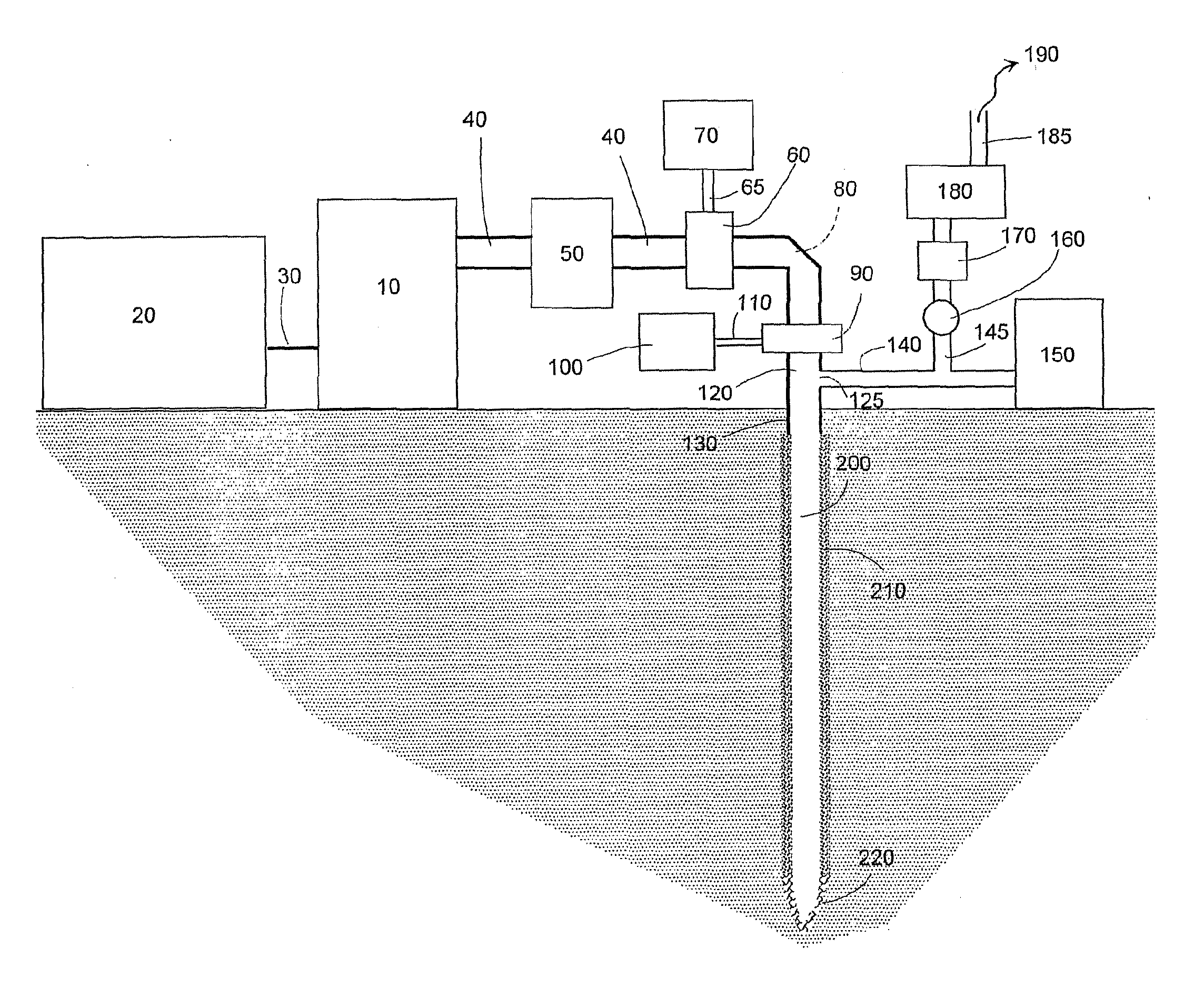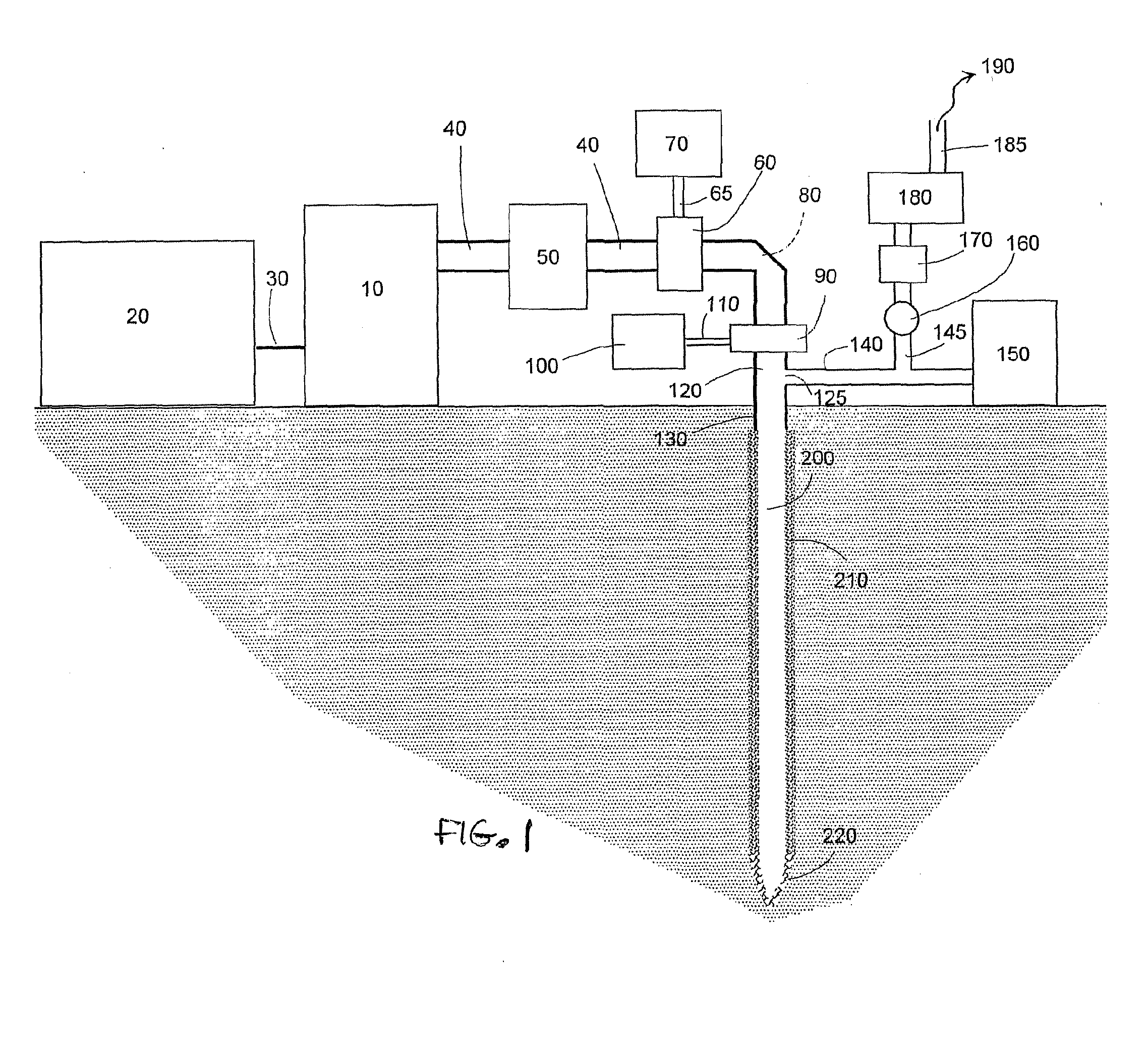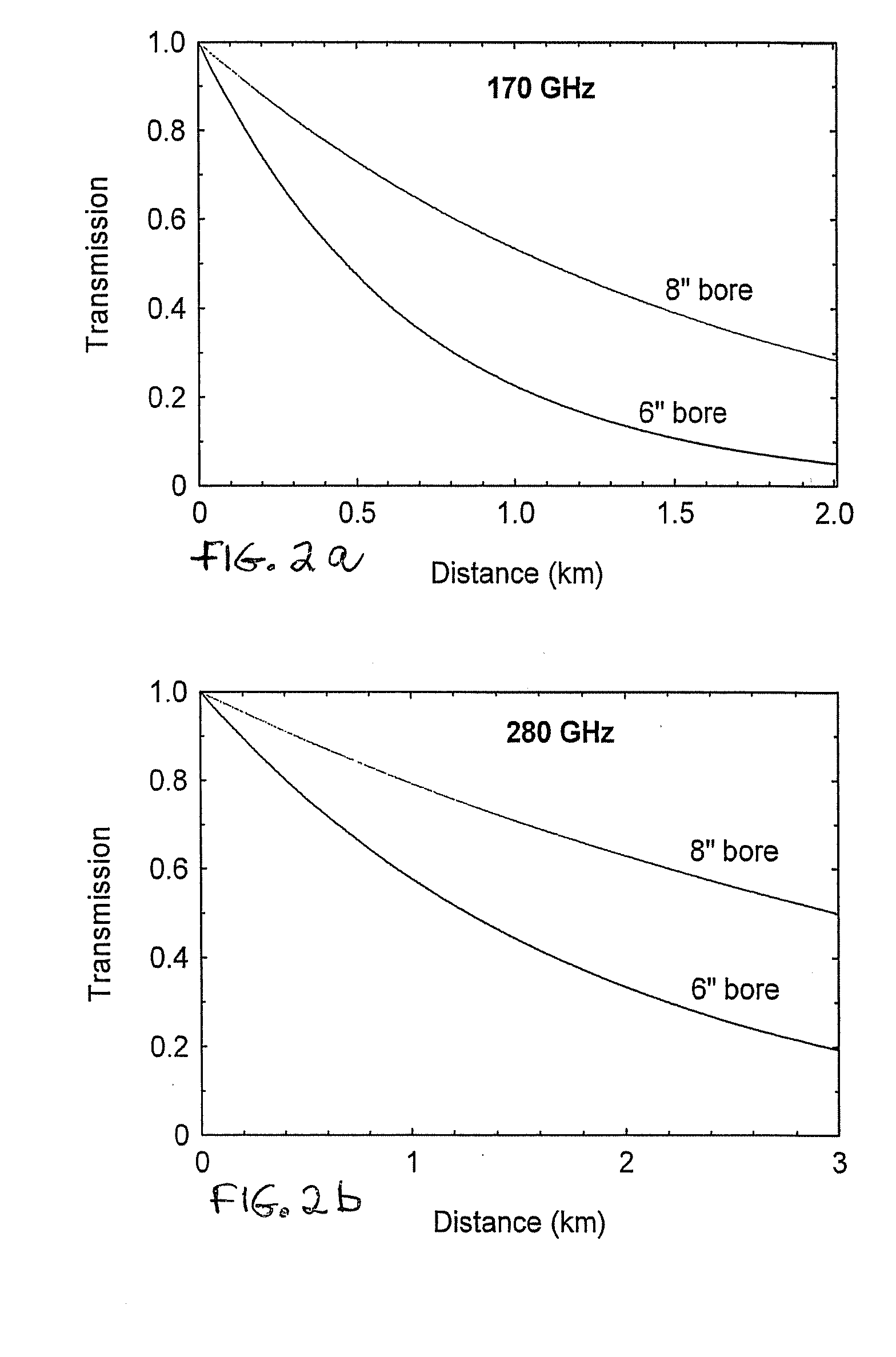Millimeter-wave drilling and fracturing system
a millimeter-wave drilling and fracturing technology, applied in the direction of drilling machines and methods, drilling accessories, borehole/well accessories, etc., can solve the problems of large volume of fluid normally required, difficulty in drilling to and difficulty in drilling to reach penetration depths above 25,000 feet (7,620 m), so as to improve the fracturing effect, propagate fractures, and optimize the effect of fracturing
- Summary
- Abstract
- Description
- Claims
- Application Information
AI Technical Summary
Benefits of technology
Problems solved by technology
Method used
Image
Examples
second embodiment
[0040]A second embodiment is shown in FIG. 8. In this embodiment the millimeter-wave beam is used to create pressure pulses to augment conventional hydraulic fracturing. The fluid conduit 403 extends only to just beyond the borehole sealing packer 407 to fill the entire borehole 200 below the packer 407 with the hydraulic fracturing fluid 415. The millimeter-wave waveguide 400 is pressurized by a gas 414 through a compressor 416 to keep it clear of the hydraulic fracturing fluid 415. At the output aperture 417 of the waveguide the millimeter-wave beam of energy 404 is absorbed by the hydraulic fracturing fluid, resulting in the generation of a high pressure pulse 418 that propagates into the substrata to promote fracturing 419. The pulse width and repetition rate of the millimeter-wave beam can be adjusted to optimize the fracturing process.
third embodiment
[0041]A third embodiment is the use of millimeter wave energy for fracturing rock without the use of a fluid. High pressure pulses could be employed. The same millimeter wave system that is used for the other fracturing embodiments could be utilized. The source can be a gyrotron and the transmission system can be a corrugated waveguide. The fractured rock can be removed by various means that include but are not limited to use of a fluid.
REFERENCES
[0042]1. B. C. Gahan, “Laser Drilling: Understanding Laser / Rock Interaction Fundamentals”, GasTIPS, 4-8, Spring 2002. http: / / media.godashboard.com / gti / 4ReportsPubs / 4—7GasTips / Spring02 / LaserDrilling.pdf[0043]2. K. Sakamoto, A. Kasugai, K. Takahashi, R. Minami, N. Kobayashi, and K. Kajiwara, “Achievement of robost high-efficiency 1 MW oscillation in the hard-self-excited region by a 170 GHz continuous-wave gyrotron”, Nature Physics, vol. 3, 411-414, June 2007.[0044]3. E. M. Choi, C. D. Marchewka, I. Mastovsky, J. R. Sirigiri, M. A. Shapiro, ...
PUM
 Login to View More
Login to View More Abstract
Description
Claims
Application Information
 Login to View More
Login to View More - R&D
- Intellectual Property
- Life Sciences
- Materials
- Tech Scout
- Unparalleled Data Quality
- Higher Quality Content
- 60% Fewer Hallucinations
Browse by: Latest US Patents, China's latest patents, Technical Efficacy Thesaurus, Application Domain, Technology Topic, Popular Technical Reports.
© 2025 PatSnap. All rights reserved.Legal|Privacy policy|Modern Slavery Act Transparency Statement|Sitemap|About US| Contact US: help@patsnap.com



